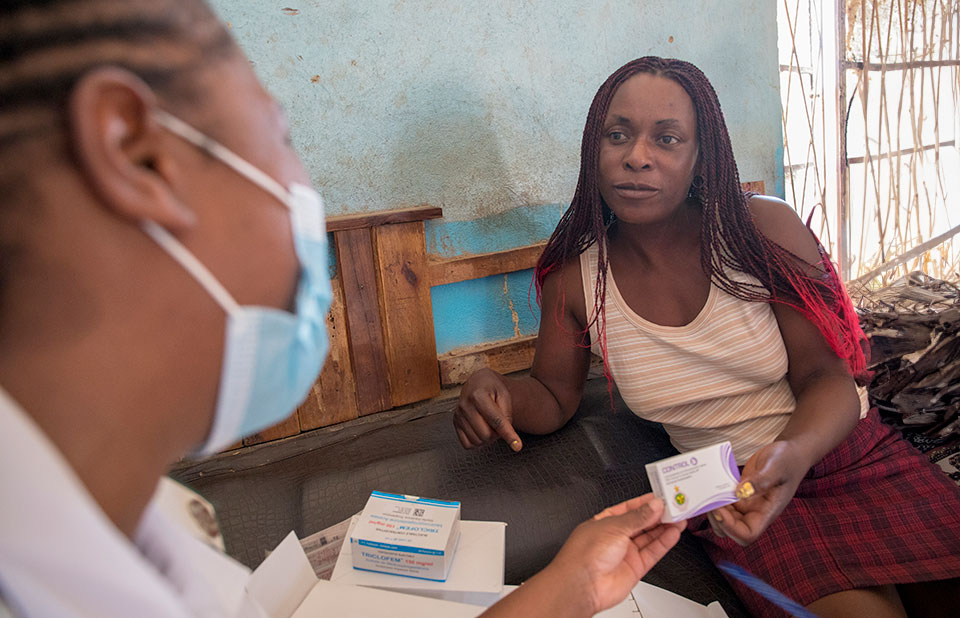Intersecting forms of structural and societal stigma and discrimination, including punitive laws, policies and practices, widen inequalities and prevent sex workers from being able to protect their health, safety and well-being. Criminalization creates barriers to enabling access to and uptake of vital HIV prevention, testing and treatment, and to sexual and reproductive health services. For sex workers who are transgender, migrants or from racial and ethnic minorities, multiple and intersecting forms of discrimination create additional barriers to services and increase risks of facing violence and harassment.
A study in sub-Saharan Africa found that the likelihood of living with HIV was seven times higher for a sex worker in a country that criminalizes sex work compared with a country that decriminalized sex work. Another review found that criminalization of any aspect of sex work was associated with reduced condom access and use and increased rates of violence. Decriminalization of sex work could avert between 33% and 46% of HIV infections among sex workers and their clients over a ten-year period.
Among countries reporting to UNAIDS, 22% of sex workers had experienced stigma and discrimination in the past six months. 12% of sex workers had avoided accessing health-care services due to stigma and discrimination in the past 12 months. One in five sex workers experienced violence in the past 12 months.
Currently 168 countries have punitive laws that criminalize some aspect of sex work. But a growing number of jurisdictions are recognizing the need to decriminalize sex work to protect sex workers. In May this year Queensland in Australia became the latest jurisdiction to decriminalize sex work.
“To protect sex workers’ health, leaders need to accelerate action to tackle the stigma, discrimination and violence that sex workers face. This will require decriminalization. The evidence is clear: punitive laws hurt sex workers and need to be removed,” said Christine Stegling, Deputy Executive Director, UNAIDS.
